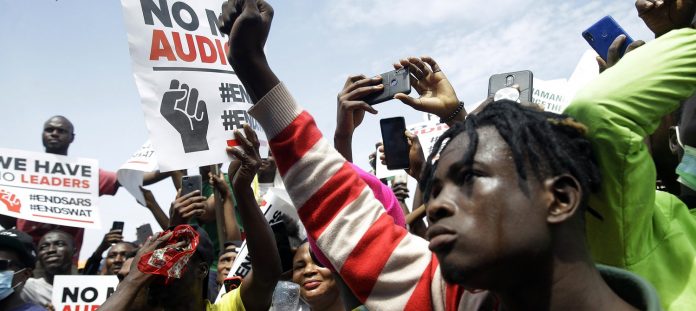(AFP) Nigeria’s media and activists fear their country is slipping into repression after the government suspended Twitter in Africa’s most populous nation, where hyper-connected youth embraced the platform as a means of protest.
The decision on Friday, days after Twitter deleted a remark from President Muhammadu Buhari, has already provoked international outcry over freedom of expression and calls for protests online and on the street.
“It is very important we push back and fast, because they could go further,” said a social media executive at a major TV station who asked to remain anonymous.
More than 120 million Nigerians have access to the internet, and nearly 40 million of them have a Twitter account — 20 percent of the population, according to Lagos-based researcher NOI Polls.
France, by comparison, has only eight million Twitter users.
Nigeria’s numbers are explained in part by its large and youthful population, but also the influence of its diaspora, and the online fame of its film and Afropop stars, said Manon Fouriscot, co-founder of the Afrique Connectees consultancy.
Studies also show that more than other social media platforms, Nigerians “use Twitter to give voice to the voiceless and engage government on issues that they feel are going wrong in the country in real time”, according to NOI Polls.
Last October, the #EndSARS protest movement against brutality by the country’s SARS — or Special Anti-Robbery Squad — police unit, which expanded into a call for broader reform, first exploded on Twitter before taking to the streets.
Backed by Afropop icons with millions of subscribers, and then relayed by major international influencers, #EndSARS was the most shared hashtag in the world for two days.
The protests that followed were the largest in modern Nigerian history, raising fears of wider instability before security forces cracked down on demonstrators.
Some Nigerian broadcasters are concerned the move against Twitter is part of a more general crackdown against the media.
The industry needs to work together to “adopt a strong and common answer,” said the social media TV executive, who has several thousand followers on Twitter.
Independent broadcaster DAAR Communications announced it had filed a complaint for damage to its economic interests. Others, such as Arise TV, were still using Twitter to share news from their offices in England or the United States.
“Twitter is, in Nigeria, and more and more on the continent, a means for civil societies to express themselves, to mobilise, to alert international public opinion,” said Fouriscot, an expert in the use of social networks in Africa.
